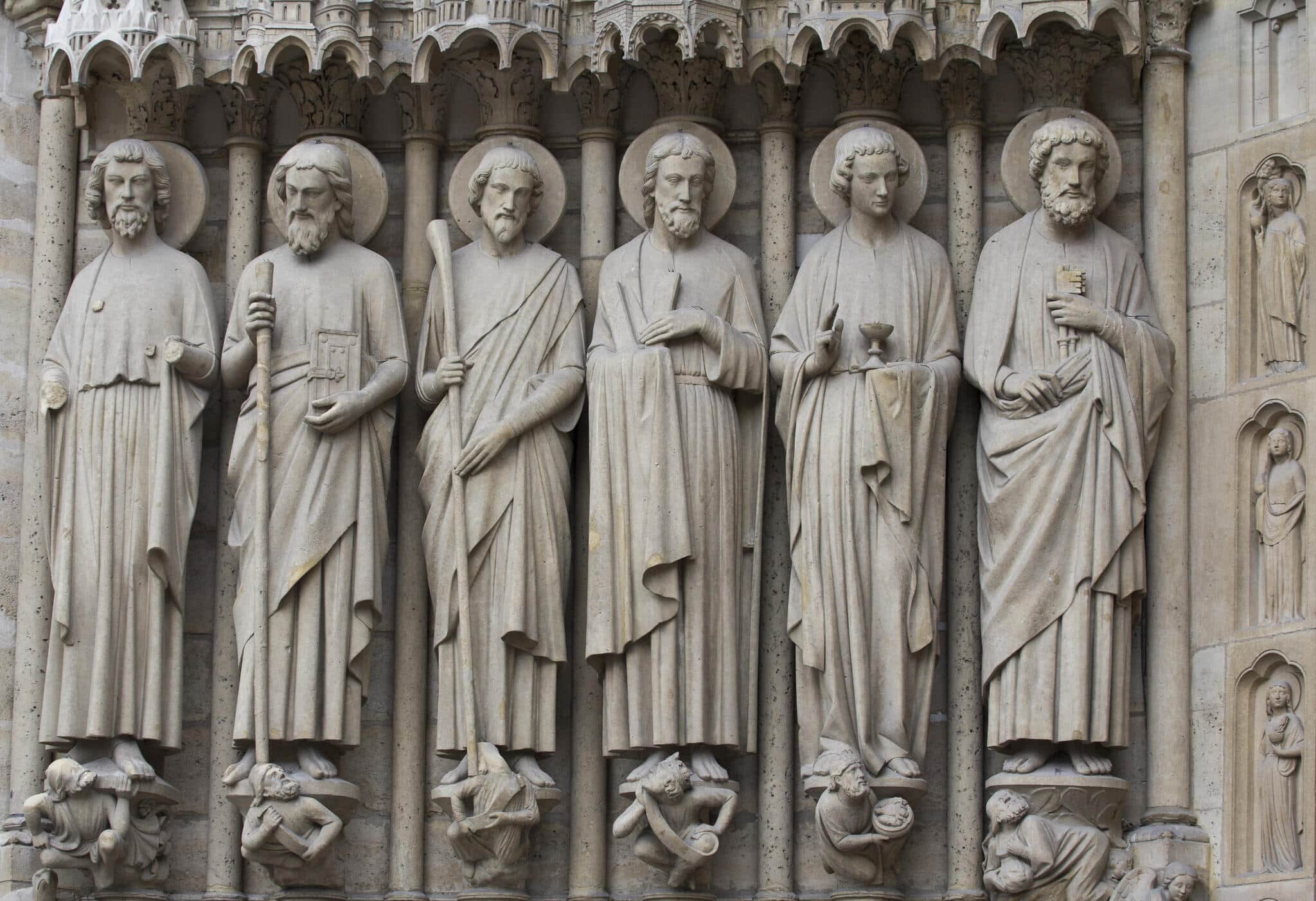
Sharing In Your Master’s Joy
By Br. Gerard Rosario DeAngelis, O.P.
Try as you may, whatever you are inside will eventually show itself on the outside.
Reflecting on my third time marching for life as a Dominican, this simple nursery school truth has been on my mind.
The accusations against the March for Life or those who attend it are well known: pro-lifers are anti-woman and against reproductive rights, or they do not care about women who are poor, victims of rape, or are not ready to have a child. Yet, looking at the history of the March for Life, I cannot help but think that the inner character of the pro-life movement has by this time shown its true colors.
One brother reflected with me when walking back to the priory after the March: “It’s funny, the March never really feels like a protest, though I guess it technically is. Everyone is having too much of a good time.” I had never thought about that before, but it is rather peculiar that at a rally protesting an unjust law, there are no fights with cops, no tires being burned, no curse words lobbed towards the Capitol, and hardly any signs mocking the other side. Rather, one finds smiles, families with children, peaceful prayers, and signs with almost entirely positive messages for child and mother.An air of bitterness—though some might think justified from a people standing up for millions of innocent people killed—is not welcome at the March for Life.

What does this all, then, say? It means that at the heart of the March for Life and the pro-life movement in general is not a message of hate but of love. On the whole, people march not because they want to force more babies into the world, but because they want to protect babies who are already in the world, yet only visible by sonogram. People do not march because they want to force their beliefs upon others, but because they refuse to believe that we do not all deep down want to protect innocent life. Lastly—and would that every pro-choice person know we really mean it—people do not march because they want to control women, but because they believe that women deserve better than making a decision that will hurt them for the rest of their lives. If this were not the case, I cannot see how pro-lifers have been able to fake it so well at the March for Life for the last fifty-two years.
The March for Life, in short, does not put on an angry face because it is really about love—especially for mothers who feel their only way out of a hard situation is the wrong choice of abortion.

This is an attitude which took me a while to fully understand. I first became involved in the pro-life movement in college when I was asked to be the treasurer for my college’s pro-life club. For my first year or so in the club, I honestly believed that we could easily convince pro-choice people to become pro-life simply by presenting the facts and asking them to think carefully about them. While this is, in theory, all you need, in fact, it seldom is.
Luckily, though, through years of experience, the guidance of many wise women who led the club, and through many speakers we had on our campus such as Serrin Foster, Joyce McCauley-Benner, and Destiny Herndon-De La Rosa, I began to more clearly see what is at the center of the true pro-life cause: care for the whole of the issue. Caring for the whole of the issue means recognizing that women do not necessarily choose abortion because they are selfish, do not care about the life of their child, or even are not intellectually convinced that a real child is in their womb. Rather, many women choose abortion because they are afraid of what will happen next, lack the support they need, or are trying their best to figure out what to do amidst the conflicting advice of boyfriends, parents, and doctors.

When framed this way, the anti-bitter, pro-love approach of the March for Life begins to show its wisdom: we will not heal the wound of abortion in our country unless we heal the wound that is in the heart of women who choose abortion— the same wound which we all have in our hearts from the Fall. Yet, wounds are never healed with vinegar but only with oil.
As a friar, these reflections have only deepened. It strikes me that emphasizing the good is a particularly Christian, and especially Dominican, approach. For example, St. Thomas Aquinas was quick to point out that people do not do evil because they want to do something evil, but because they see some good in doing the evil thing. No one gets (or encourages another to get) an abortion because he or she wants to be an evil person. So, if we are to stop a woman from getting an abortion, we need to help her understand there is a greater good in sacrificial love than in whatever material or personal good she is hoping to preserve through abortion. If you think about it, God himself takes this approach. He sent his Son to offer his life on the cross not to condemn the world, but to draw it close to himself with bands of love. When he welcomes the blessed into heaven, he will say “Come, enter into the joy of your master” (Mt. 25:21).
The call that the March for Life issues to the world, then, is not to disparage pro-choice people as wicked, “stupid, or disingenuous. Rather, it is a call to enter into the kind of joy possible when self-sacrificial love fills your life. Such a call cannot help but be attractive. And such a call resounding in the heart of every person is the only thing that will put abortion to rest for good.
✠
Photos by Jeffrey Bruno






